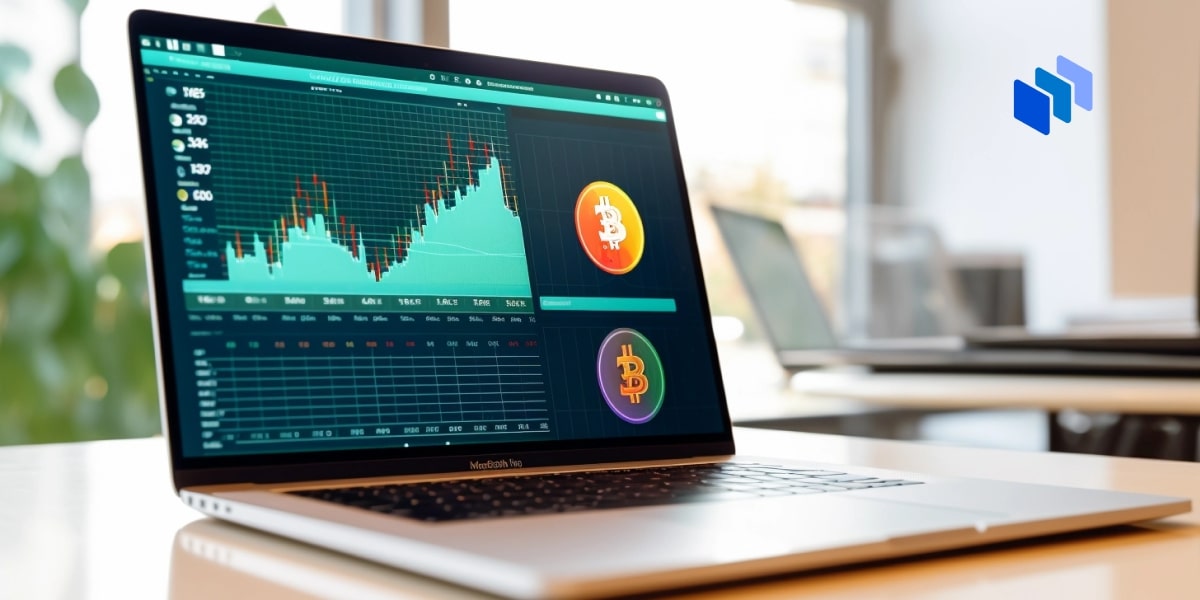Every day appears to bring us closer to a Bitcoin Exchange-Traded Funds (ETF) with financial institutes, including BlackRock and Fidelity Investments, currently in the midst of submitting applications to the Security and Exchange Commission (SEC).
According to minutes published yesterday, representatives from BlackRock and Nasdaq met with the SEC on November 20th, 2023, to discuss a revised proposal.
And while SEC chairman Gary Gensler said this week he would not “pre-judge” any proposal, this feels the closest a spot Bitcoin ETF has come to reality in all of the years it has been discussed, with some analysts predicting a verdict in January 2024.
Looks like BlackRock met with the SEC's Trading & Markets division again yesterday and gave presented them with a "revised" in-kind model design based on Staff's comments at their 11/20 meeting.. h/t @btcNLNico here's full doc: https://t.co/sgOpY5D1jz pic.twitter.com/863pWOX6w0
— Eric Balchunas (@EricBalchunas) November 29, 2023
Join us as we sit down with industry experts to discuss how a crypto ETF could work and what it will likely mean for the industry.
READ MORE: Who Are The Largest BlackRock Shareholders?
Why Are We Talking ETFs?
Cryptocurrency Exchange-Traded Funds (ETFs) serve as a gateway for investors to enter the world of digital assets without the complexities of direct purchases.
Divided into two main types — spot and derivative-based — these ETFs provide different avenues for investors to engage with the ever-evolving crypto market.
The idea of incoming ETFs for crypto is on many people’s lips, potentially unlocking more income and liquidity into the crypto markets.
But what exactly are we talking about? What are the varieties of ETFs, features, risks, opportunities, and opinions out there?
Spot-Based Crypto ETFs vs Derivative-Based Crypto ETFs
Crypto ETFs are investment funds that track cryptocurrency prices, offering investors exposure to digital assets without needing to go out and buy any.
Primarily, there are two types of cryptocurrency ETFs: spot and derivative-based.
Spot-based crypto ETFs directly hold physical cryptocurrencies, providing investors with direct ownership of said a. Meanwhile, derivative-based crypto ETFs use financial instruments like futures contracts, allowing investors to speculate on the price movements of digital assets without owning the assets.
James Seyffart, ETF research analyst at Bloomberg Intelligence, explained that depending on the structure of the futures curve, some derivate-based ETFs can face a dragged-on performance.
“Recently Bitcoin [BTC] futures ETFs that hold front month futures contracts had to sell the Bitcoin Futures contracts expiring in November and then had to purchase the December contracts. If the next month’s contracts (December in this case) are at a higher price than the current month (November), the fund is selling low and buying high. This spread can eat into returns. We refer to this a negative roll yield. It’s this process that has the largest Bitcoin futures ETF in the US, BITO, underperforming Spot bitcoin by over 10% year-to-date in 2023.”
According to Carlos Mercado, a data scientist at Flipside Crypto, some regulators view spot-based ETFs as over-reactive to volatility, can be easier to manipulate prices, and generally have lower liquidity.
In addition, David Siska, the head of research at Vega Protocol, added that spot-based ETFs can be less capital efficient than derivative-based ETFs, meaning higher management fees accompany spot-based ETFs.
Purchasing Crypto Spot ETF Is Just Like Owning Crypto
Over time, the accumulation of crypto assets by spot ETF can significantly impact the supply and demand dynamic in the crypto market, Kevin Luthringshausen, the lead market analyst at The Tradier Hub, told Technopedia.
“When a spot ETF buys cryptocurrency, it removes that cryptocurrency from the circulating supply, which can put upward pressure on prices. Also, the inflows of capital into spot ETFs can attract new investors to the crypto market, which can further increase demand.”
Bloomberg Intelligence’s Seyffart added that purchasing a Bitcoin spot ETF is not much different than buying the asset directly.
“Purchases of spot Bitcoin ETF shares will be just like purchasing Bitcoin itself as far as the supply & demand characteristics are concerned.
“It is possible and even likely that when the ETF is large enough and liquid enough that these shares will trade on exchange without touch the underlying bitcoin.
“But if there is enough demand the ETF will only be able to satisfy that demand by creating new shares and buying more bitcoin. The same is true for the alternative.”
Financial Institutions and Crypto Spot ETFs
Vega Protocol’s Siska explained that crypto ETFs can solve a number of problems for institutional investors. Namely, Know Your Customer (KYC) and anti-money laundering (AML) requirements as they deal with the institution providing the ETF instead of the digital asset.
Ashton Addison, the founder and CEO of Crypto Coin Show, added that he expects major financial institutions to closely monitor the ETF approvals and watch for the optimal time to enter them based on their specific strategies and risk appetite.
“The more innovative institutions will likely already have some kind of exposure to Bitcoin and are increasing their exposure prior to the ETF approvals, as the approval itself is likely to have a large appreciation on Bitcoin spot price.”
Bloomberg Intelligence’s Seyffart, on the other hand, is less bullish about financial institutions adopting crypto spot ETFs too quickly due to them exercising more “due diligence” and waiting for a track record and a compliance review on such products.
“Some more nimble institutions are likely waiting for a spot ETF and might buy such an ETF within days or weeks of launch but its far more likely that big institutions are going to do due diligence and wait for a track record and compliance review on these products.”
Michael Novogratz, chief executive officer of Galaxy Digital Holdings, told Bloomsburg yesterday: “Could we go to old highs by this time next year?… Of course.
“We will see a pretty successful shift of psychology when the government says you are allowed to buy Bitcoin.”
Regulatory Bodies Could Scrutinize Crypto Spot ETF Adoption
Crypto Coin Show’s Addison said that regulatory bodies could respond to adopting spot ETFs with increased scrutiny of the cryptocurrency industry as they highly focus on protecting investors and mitigating risk, especially when introducing a new and more risky asset class into traditional finance.
“While Bitcoin, as the first crypto asset to be approved, has mostly received the green light, other cryptocurrencies seeking ETF approval with different economics, levels of centralization or decentralization, and potential classification as traditional securities should be evaluated with the same scrutiny as the bitcoin ETF.
“It is essential to recognize that the approval of a bitcoin ETF does not automatically extend a green light for all cryptocurrencies. Some may be classified as securities or scams, warranting continued regulatory attention.”
Igor Telyatnikov, the CEO and co-founder of AlphaPoint, added that the more the industry of spot ETFs proliferates, regulators could step up oversight, especially surrounding custody/security requirements, liquidity rules, and mitigating risks of manipulation or loss of assets.
“As adoption of crypto spot ETFs grow, so will the risk with theft of private keys and the underlying assets held. While many have developed best practices around safe and secure custody of digital assets, regulators are likely to take keen interest in this new risk frontier.”
The Tradier Hub’s Luthringshausen added that the very nature of crypto spot ETFs would fall under the purview of the regulatory bodies that monitor the US markets and may oversee the imposture of stricter requirements for the approval and listing of the digital assets, including more stringent oversight of underlying digital asset holdings, custody practices, and anti-money laundering measures.
The Future of ETFs
Crypto spot ETFs could play a crucial role in enticing institutional investors into the market as they will be a regulated and transparent way to gain exposure to the decentralized finance (DeFi) market, Luthringshausen said.
“As this space evolves, a more broader range of spot ETS could be offered which will give choice to the investment community. We could also see an integration of crypto Spot ETF into traditional financial investment portfolios which could legitimize cryptos as an asset class opening them up to a broader range of.”
Bloomberg Intelligence’s Seyffart added that by the end of 2024, the finance industry expects billions of dollars to be invested in spot BTC and potentially ether (ETH) ETFs.
“More years later we will likely see many spot crypto ETFs available in the US but we may need an act of congress, namely a market structure bill, before that happens. Other paths for this include a new administration at the SEC or more clarity from US federal courts.”
Crypto Coin Show’s Addison is also bullish on where spot ETFs could be headed in the future:
“It’s hard to say exactly where crypto ETFs will be headed in the future, but based on some of the signs we have seen already, we’ll first need to see the approval of a bitcoin spot ETF, and then, secondly, the ethereum spot ETF.
“If those are approved and the market is responding well, I expect further ETFs of other large crypto assets, similar to how Grayscale’s crypto trusts of large assets like Litecoin (LTC), Bitcoin Cash, Ethereum Classic (ETC) are structured.
“Alternatively, we could see more novel cryptocurrencies like Chainlink (LINK), Solana (SOL), Polygon (MATIC), and Avalanche (AVAX). I am personally excited to see the process with bitcoin and ethereum first.”
On the other hand, Flipside Crypto’s Mercado noted that too much off-chain financialization of crypto assets could harm the health of the blockchains that they live on.
“Bitcoin, for example, halves its block rewards periodically. Without transactions on the chain paying nodes, the blockchain will get weaker and less secure as miners become less profitable.
“So crypto ETFs need to be conscious of how they support and interact with the underlying blockchain systems that store their assets.”
The Bottom Line
Overall, the rise of crypto spot ETFs could reshape the DeFi market, offering direct ownership of digital assets with potential benefits of increased demand, institutional interest, regulatory scrutiny, and the need for market maturity.
The future of where crypto spot ETFs are headed hinges on regulatory developments, investor adoption, and the industry’s ability to integrate ETFs responsibly without compromising blockchain integrity.









